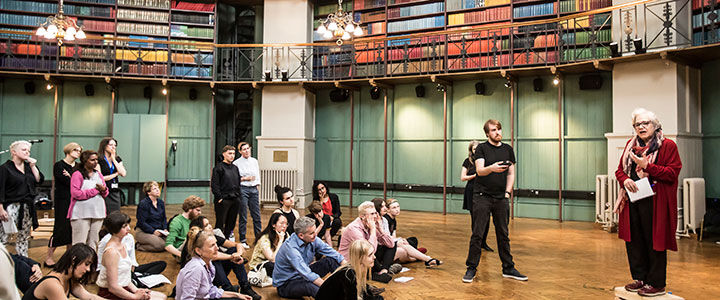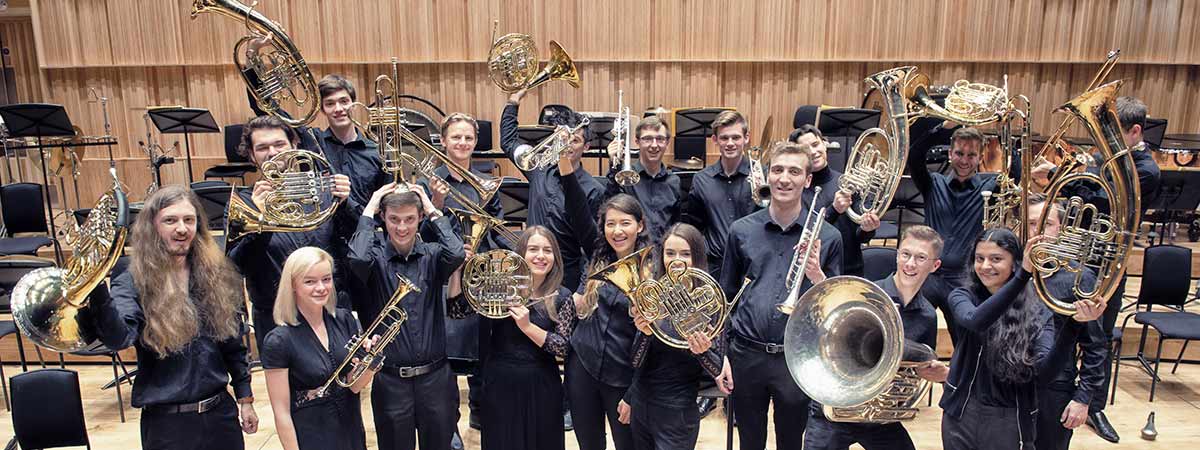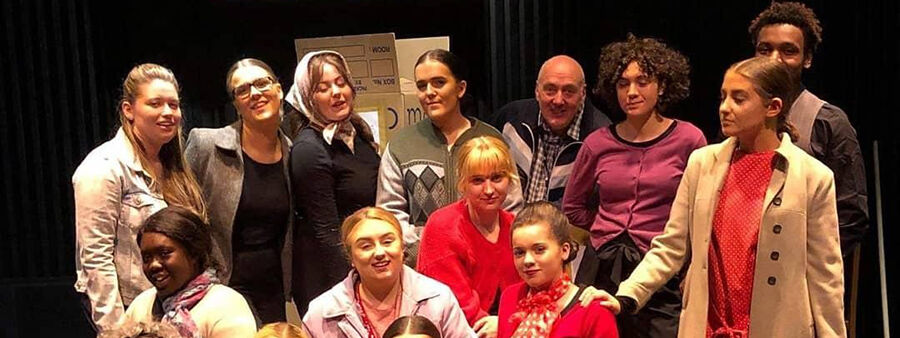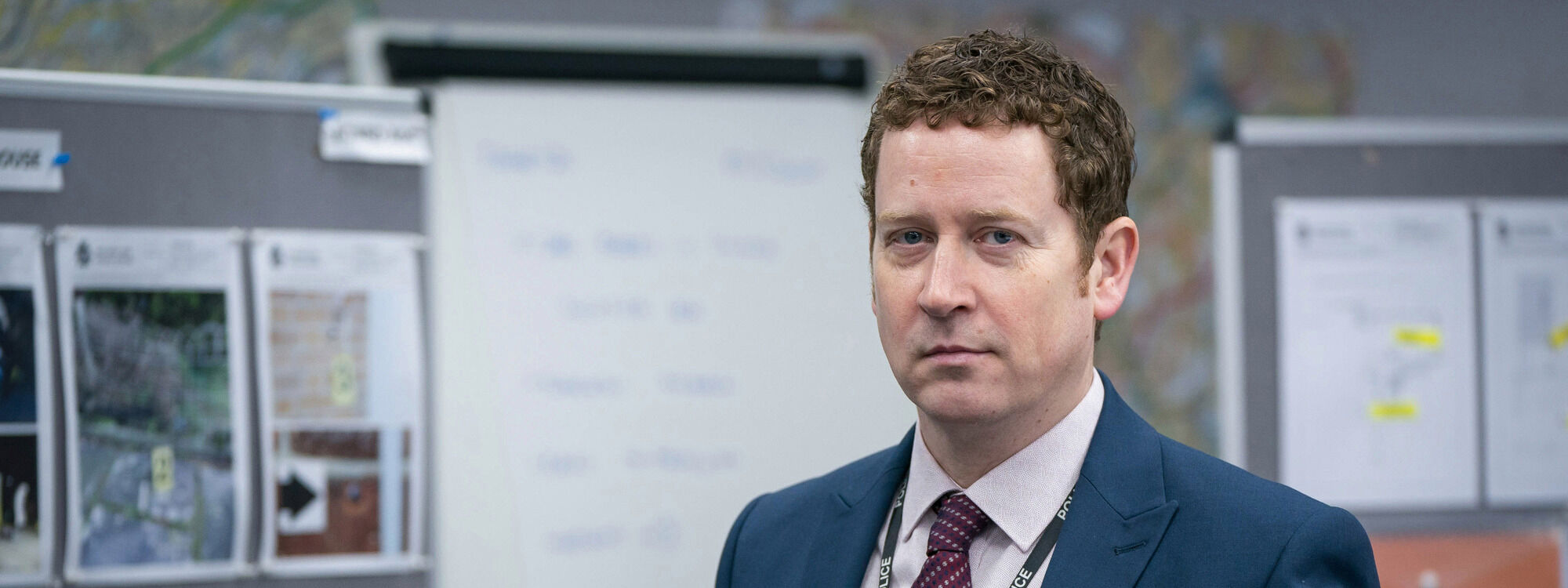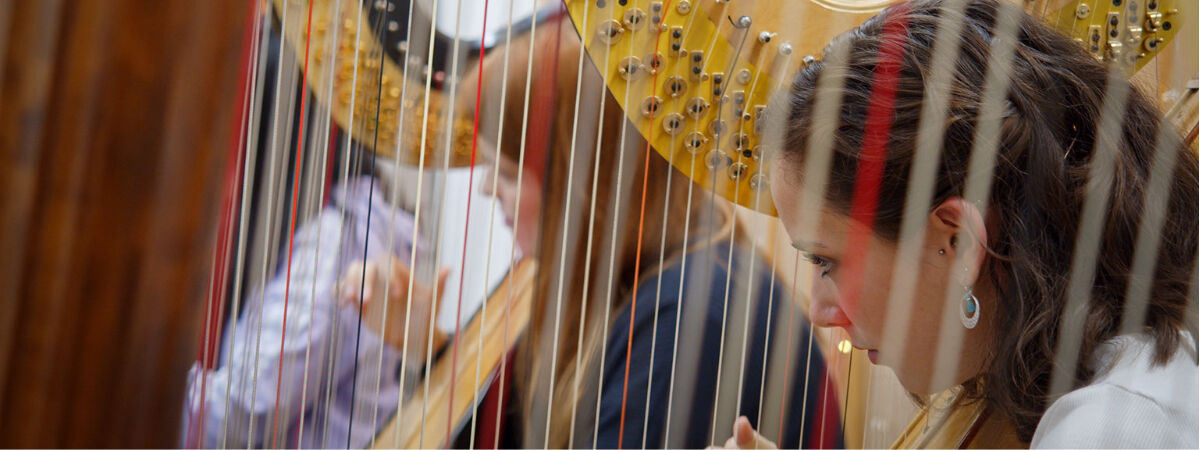Welcome to the first instalment of a new series of Passing the Baton.
Each week, a member of the RBC community will interview a colleague to gain some insight into how the coronavirus crisis has affected their life, both professionally and personally. The interviewer will then pass the baton to the interviewee who will go on to present their questions to another person until finally closing the loop with an interview with our first candidate.
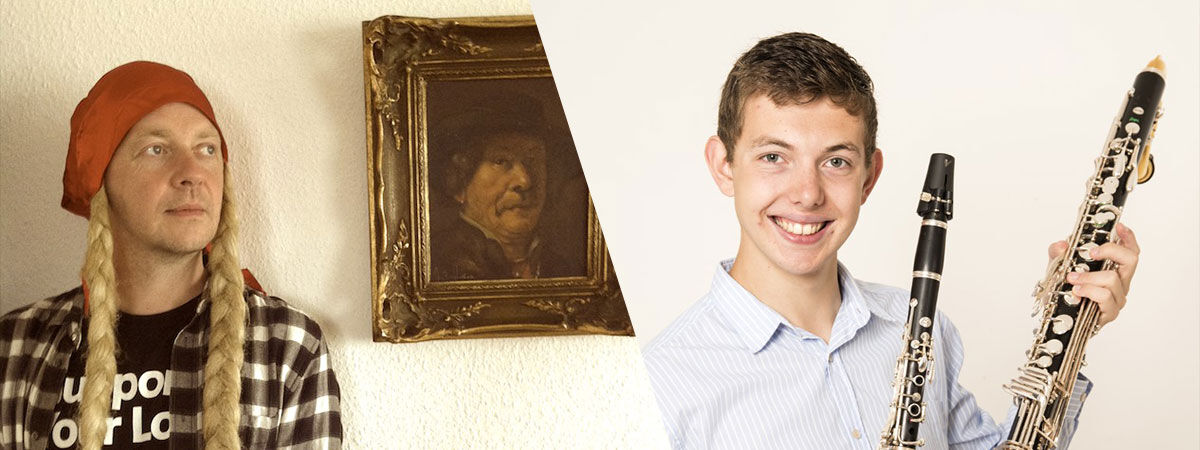
This week Deputy Head of Composition Michael Wolters speaks to 2020 BMus (Hons) graduate and clarinettist Nathan Isaac.
Michael Wolters (MW)
As someone who constantly watches tennis, how have you been dealing with there being no sport to watch during lockdown?
Nathan Isaac (NI)
I’ve really missed live sport, and it’s a huge shame that Wimbledon won’t be happening this year as I always try to tune in as much as possible. The opening rounds never fail to bring surprises or shocks.
To deal with the lack of live sport, I’ve watched a number of sporting rewinds that have been broadcast on various TV channels, some of which were events that happened during my lifetime and some that took place before I was born.
A golf rewind that I particularly enjoyed watching was the final day of the 2012 Ryder Cup in Medinah, which Team Europe won as we witnessed one of the best sporting comebacks of all time.
A couple of rugby rewinds I particularly enjoyed watching were both matches between my beloved Wales – my friends will know that I get very patriotic, particularly when there’s rugby on – and the old enemy, England. The first match was from the 2013 Six Nations, where England were favourites to clinch the Grand Slam, only for Wales to thrash them 30-3 and defend their Six Nations crown.
The second match was from the 2015 Rugby World Cup, where, again, England were the overwhelming favourites. Wales with a depleted squad – we had our third choice scrum half playing on the wing at one stage – and once again Wales were victorious. This time it was a much closer affair, 28-25, and to make the victory sweeter, the game was at Twickenham, a ground where Wales have struggled to get results. England became the first host nation ever to be knocked out of the World Cup at the group stage.
A particular football rewind I’ve watched many times during the lockdown ,simply because I can’t get enough of it, was Wales vs Belgium from the 2016 European Championships, where Wales, completely unexpectedly, progressed to the semi-finals of the tournament. It’s a game and a tournament that brings back some fond memories as I watched the game live with all my schoolmates and teachers at my Year 13 prom.
Nostalgia aside, I am so thankful that the Premier League has restarted, mostly as it’s now official that the team I support, Liverpool, are Premier League Champions. On the subject of the return of live sport, I’ve also been watching Super Rugby, and it’s been strange, yet encouraging, to see full crowds in the stadiums in New Zealand, a testament to how well they’ve fought this dreadful disease.
MW
Have you been cooking any new dishes during lockdown? If so, do you have any recommendations?
NI
I have cooked a couple of dishes; admittedly it is my mother who has done most of the cooking in our household. She set herself a challenge at the start of lockdown to cook a different dish each night during lockdown, and we had a different dish every night for about three months – we discovered lots of tasty new dishes.
I have cooked a couple of curries during lockdown when we have had “fakeaway” nights as a family, which have gone down well. The first time I made it up as I went along, throwing anything I could find in the fridge into the saucepan. The second time, I followed a recipe by the Hairy Bikers, which was delicious. I would highly recommend the Hairy Bikers recipe books
I also cook a mean Spaghetti Bolognese, but I thought that while I’m home, I’d leave the expert, my mother, to cook it.
MW
Oh yeah, music... Has Mark O'Brien introduced you to lots of contemporary music? Do you like playing contemporary stuff?
NI
Music, I almost forgot about that. Speaking of which, I am sure I speak for many in RBC and the wider arts community when I say that I breathed a sigh of relief when I read the recent government announcement regarding money for the arts. Hopefully, we can all perform live sooner, rather than later.
As far as contemporary music is concerned, it has been a mixture between recommendations from Mark and me finding new music. Given that I’ve had quite a lot of time on my hands, Mark has been encouraging me to learn lots of new extended techniques, so that I’m best equipped for the time when we’re allowed to perform again.
On bass clarinet, I’ve particularly enjoyed delving into different styles of contemporary music. A new piece that I’ve been learning, although originally a piece for solo contrabassoon, called ‘In a Deep Funk’ by Daniel Dorff is very funky and cool. It’s split into four movements and each has contrasting funky/pop rhythms as the foundations of the movement.
I did have a piece written for me a few months ago by a friend of mine who just happens to be a composer, Nathan James Dearden. The piece ‘No Other Haven’ is a solo clarinet piece split into three contrasting and fun movements. The piece was meant to be premiered at my live final recital in the Recital Hall, but although I still played the piece for my recorded recital, I’m looking forward to the time when I can play the piece live to an audience.
Although I’ve played commission pieces with various ensembles within and outside RBC, I’ve not played a commission piece as a soloist before this one, so it was a fantastic experience and an opportunity to really explore the music both in my own practice and in my lessons with Jo Patton, as well as put my own stamp on it.
One other aspect that I really enjoyed from learning a commission piece was that I could have discussions with Nathan and ask questions about what his intentions were with certain phrases and his inspirations and thoughts when writing the piece. I then tried to implement the composer’s intentions in the music making. Whether that was sending him a message and having a brief discussion or meeting up in a bar, beer in hand and score on the table – which seems so long ago now
The experience of having a piece written for me and then performing it, even if it wasn’t live, was very enjoyable and a big learning curve. Whether it’s Nathan or another composer, I would be willing to collaborate with composers in the future and would encourage any instrumentalist to do so if given the opportunity. I found it extremely rewarding.
MW
What's been your favourite experience at the Conservatoire and why?
NI
I’ve been fortunate to have many fantastic experiences at RBC over the past four years, including the Pops Orchestra concert, which was broadcast on Classic FM during my second year, and the many concerts and outreach projects that I’ve been involved in with LEAP Ensemble.
It’s a tough call between playing the ‘Rite of Spring’ with the Symphony Orchestra and Michael Seal – one the best orchestral concerts I’ve ever been involved in – or my major project, which is probably my biggest achievement during my time at RBC. It’s a tough call because I did all the planning and created it. I think my major project just pips it.
For those who don’t know, my major project was a collaborative concert between RBC’s Clarinet Department and CBSO Clarinet Section called ‘A Clarinet Date Night’, which happened on Valentine’s Day. One of the aims of the concert was to show how great the clarinet is by presenting a programme of contrasting music. There was lots of minimalism, including Reich’s ‘New York Counterpoint’, some Star Wars and even ‘La Danse Macabre’ – for four bass clarinets.
It was a fantastic experience. I still cannot quite believe that I managed to pull it off. The concert went really well and raised £600 for Cancer Research UK – a total which exceeded everyone’s expectations, and I was delighted to donate the profits to a charity that’s close to me. It was also a fantastic experience sharing the stage with not only my friends, but with my teachers as well – a real collective team effort. Every single musician threw themselves into the project, and I couldn’t have asked for a better bunch of musicians and people to have played in the concert.
MW
Lockdown has forced us all to re-think how we do things. Are there any changes that you've made that you will continue with after lockdown eases?
NI
There are plenty of things that I have changed and want to continue with after the lockdown is over.
Something I’ve explored is doing stretches and doing breathing exercises before I get the clarinet out for a practice session. I have noticed a big difference in my sound and airflow. I believe that breathing exercises have been common practice in the brass world for a while, and hope it becomes common practice in the woodwind world as well.
Doing stretches has made a difference, not just in my sound because my muscles are more relaxed, but I have found it’s helped my posture as well. Again, I would really encourage anyone to do simple stretches before they practise – whatever instrument they play.
Another good habit I have developed is exercising regularly. This is something I want to continue post-lockdown.
MW
Quite a few people have said to me: "I'm not a fan of the clarinet". To change their minds, what do you think these people should listen to?
NI
It’s a shame this question wasn’t asked in January because the answer would have been “come to my major project”. Many of my family friends who weren’t fans of the clarinet and were sceptical of a concert where there were just clarinets were converted by the end of the evening.
A couple of pieces that were played at my major project that I’d recommend to the yet-to-be converted, would be ‘Black’ by Marc Mellits and ‘Paquito’ by Andy Scott. ‘Black’ is a piece for two bass clarinets and it’s inspired by a mix of minimalism and rock. ‘Paquito’ is based on a reverse clave rhythm and its one of the clarinet department’s favourite pieces to play – so much so that we actually recorded the piece for the masses just a couple of weeks ago. Check out RBC Woodwind Department Facebook page to find the video
As far as the standard repertoire is concerned, it depends on what people are looking for. If they’re looking for a nice tune, I would recommend either of the Brahms Sonatas. They’re great pieces of music.
For something jazzier, listen to some of the Benny Goodman tracks or Eric Dolphy. He is a bass clarinet god.
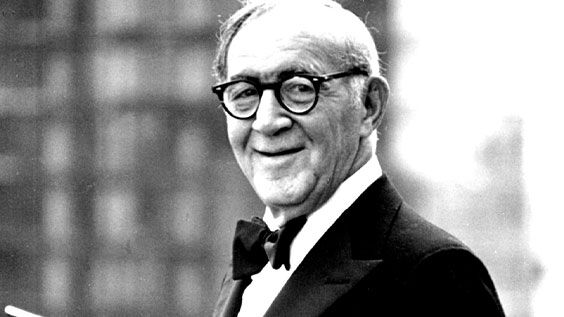
There are two YouTube channels that I’d really recommend: French clarinettist Nicolas Baldeyrou is amazing. He has an awesome cover of ‘Misirlou', which was made famous by the ‘Pulp Fiction’ soundtrack for clarinet ensemble as well as covers of more classical pieces. If you want to be blown away, his video of the first movement of the Françaix Clarinet Concerto is insane.
Another YouTube channel, Earspasm Music is run by an American clarinettist/bass clarinettist called Michael Lowenstern. Although a lot of his videos are clarinet specific, which is helpful for any budding clarinet players, he’s got some cool arrangements of pop songs, including Bruno Mars’ ‘Uptown Funk’.
Once they’ve been converted, go and explore the standard repertoire and Michael Collins’ albums are a fantastic place to start. Then, they’ll see just how versatile the clarinet is – there’s a lot out there.
MW
If someone is planning to visit Maesteg, where should they go, what should they do?
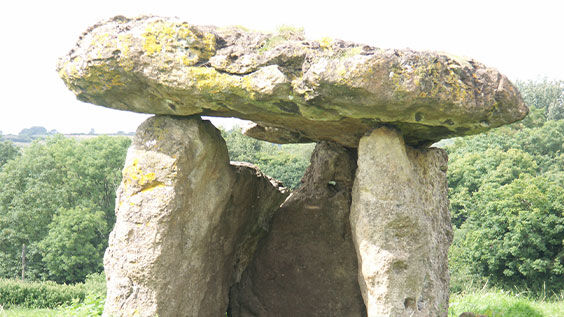
NI
If truth be told, there’s not an awful lot to do during these times because everything is closed. That said, I’ve discovered some fantastic walking routes where I’ve learned a lot about local history, particularly about Maesteg’s role in the coal mining industry. There’s a 2-3 mile stretch where six or seven collieries once stood.
In a situation where things are normal, there is always a concert to go to and a choir to join if you enjoy singing. Maesteg generally gets quite negative attention in the news, but it is bursting with musical culture and has a fantastic sense of community. In a town of just over 20,000 people, Maesteg is home to two mixed voice choirs, two ladies choirs and either two or three male voice choirs and a children’s choir – I’ve probably missed out a couple as well.
There are plenty of pubs to choose from in Maesteg, all with their own unique characters. One I would massively recommend, the Cross Inn, is about a mile or so from the town centre. It’s what I’d call a proper local pub, but it also has its own microbrewery. They make some tasty beer. During lockdown, the landlord has been selling five litre boxes of beer as well as smaller pouches of beer. Needless to say that I’ve sampled a couple of the boxes.
If you’re looking for a pub with some history and stunning views, head up to the village of Llangywnyd to the newly renovated Old House. Originally built in 1147, I’m pretty sure it’s the oldest pub in Wales and the second oldest pub in the UK. Unfortunately, I’ve not managed to take a trip to the Old House since they’ve renovated the place, but I’ve heard some great reviews.
So, in short, if you are visiting Maesteg be prepared for lots of music, a proper valleys welcome and lots of drinking.
